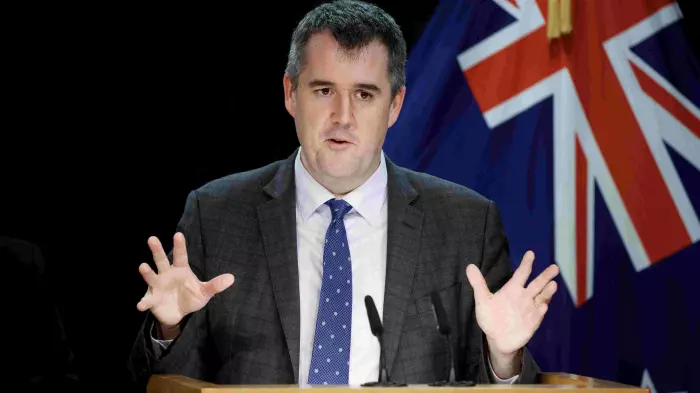Planning crucial to avoid running out of money in retirement.
New Zealand has one of the highest rates of people aged 65 and over still working at 24 per cent, according to a report from the Retirement Commission - Te Ara Ahunga Ora.
This is significantly higher than the UK at 10 per cent and Australia at 12 per cent while the percentage of those aged 65-69 still working is even higher at 44 per cent. Milford’s head of Wealth Management, Philip Morgan Rees, says it is unclear from the report why Kiwis work longer but, in his experience, it’s clear that retirement, when it comes, needs to be planned and managed in terms of lifestyle change and financial change.
While most people understand they need to save for retirement, many fail to plan for the post-retirement period, he says. The good news is that people who retire later than age 65 are likely to live longer, research published in the Harvard Business Review (HBR) in 2016 found. “Our theory is that a later retirement may actually delay when your physical and cognitive functioning starts to decline, because work keeps your mind and body active,” the researchers told HBR.
Morgan Rees says the point isn’t that we should all keep working forever, rather how important it is to have purpose, structure, a social life and to stay physically and mentally active in retirement. Those elements can be gained in ways other than continuing to work – but not without taking time to plan for a retirement and by taking into account the changes in daily, weekly and monthly structure in life post-retirement.
So, successful retirement isn’t just about finances although they are clearly and obviously vital, he says. Kiwis need to start planning for this post-retirement period around age 55, according to the Retirement Commission. Morgan Rees echoes that, saying: “The earlier people start to consider what retirement looks like in a financial sense and emotional sense, the better. It goes beyond saving or investing.”

Risks that need to be managed
Several financial risks need to be managed through retirement, Morgan Rees says, with inflation perhaps one of the best understood. “Everyone knows that inflation erodes purchasing power and therefore an investment strategy needs to ensure investment capital and income maintain their purchasing power.”
With volatile markets in the last couple of years, investors may have been attracted by relatively high term deposit rates. However, a high inflation rate means you are likely not getting a real return from such an investment, Morgan Rees says.
An appropriate allocation to growth assets – such as shares in a portfolio – should help future-proof your investments against inflation: "Growth assets are volatile but can provide higher returns in the long term.”
Longevity is another risk. No one likes to contemplate how much longer they may have to live, but planning for a range of outcomes is crucial if people want to avoid running out of money at 80, Morgan Rees says.
A man turning 65 this year will on average live to the age of 86. For a woman the average life expectancy is 88.
A financial adviser can help model different scenarios, which will need to be reviewed and managed regularly, to help ensure sufficient financial resources last a lifespan, Morgan Rees says.
Also, with volatility in markets from time to time, it’s worth bearing in mind that two people could have the same starting amount and same monthly drawings and end up with different amounts based on when they started drawing and whether that was a volatile period (for example, markets falling) or not.
Volatility can greatly impact portfolio values at any point – but the run-up to retirement is a critical period for managing risk, as well as right after retirement when people often make larger withdrawals.
"A market fall during the early stages of retirement can mean a very different outcome to retiring during a bull market,” says Morgan Rees, highlighting that a financial adviser can help people navigate these decisions.
Another difficulty in retirement planning is the uncertainty. A retired person may fall ill, have an accident or wish to support family members financially. Morgan Rees says planning ahead so that options are available for those unforeseen events can make all the difference.
One of the other foremost risks is emotion, Morgan Rees says. Research shows we generally become more risk-averse in retirement, and there can be unintended consequences: “Sadly, that also sometimes means we are more emotional and susceptible to making knee-jerk mistakes.
“For example, back in 2020, when Covid hit, markets dropped very quickly”, Morgan Rees says. Many investors had an emotional response and switched from growth to conservative assets or to cash. When the markets recovered shortly after, those who had switched their investment crystalised losses that were hard to recoup.
Riding out those dips becomes much harder the older you get, Morgan Rees says, and while all these factors can happen at any point in time, they need to be taken into consideration in retirement planning where the impact may be greater and the time to recover, shorter.
“Plans are not there to set and forget; all investment plans and retirement plans can benefit from good financial advice with regular reviews, tweaking and evolving.”
Retiring is a huge milestone, just like the first day of school or starting a new job – and just like those other milestones, it requires careful thought, learning from those who advise you in those scenarios and, just like education or a career, realising that nothing is constant and that everything changes.
This article does not take into account your investment needs or personal circumstances. It is not intended to be viewed as investment of financial advice. Past performance is not a reliable indicator of future performance. Investment involves risks and returns can be negative as well as positive. Milford Funds Limited is the issuer of the Milford KiwiSaver Plan and Milford Investment Funds. Please read the relevant Milford Product Disclosure Statement at milfordasset.com. Before investing you may wish to seek financial advice. The Disclosure Statements for all Milford Financial Advisers contain more information and are available on request, free of charge. See our Financial Advice Provider Disclosure Statement at milfordasset.com/getting-advice.






